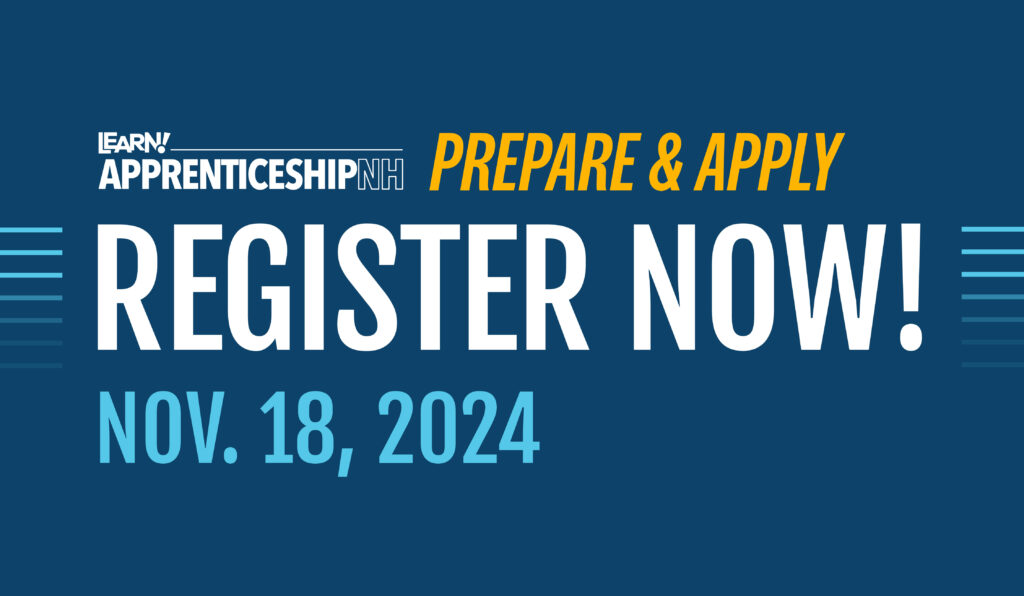Some of the greatest perennial challenges faced by employers are recruiting, training and retaining a skilled workforce. While this has been an ongoing challenge for many industries, it has become more prevalent over the last several years due to an ongoing shortage of skilled workers that directly impacts their operations and growth.
Registered Apprenticeships are a proven solution for businesses with workforce shortages to hire and retain workers while acting as an opportunity for jobseekers to earn immediate employment, steadily increase wages and develop new skills in high-demand fields.
On average, 90% of apprentices stay employed after completing the program.
Through the ApprenticeshipNH initiative, employers within key sectors of the state’s economy can develop workforce development programs to create a pipeline of skilled workers through a Registered Apprenticeship program.
Known as the “Earn As You Learn” model,” ApprenticeshipNH combines on-the-job training and classroom education through the seven colleges in the Community College System of New Hampshire (CCSNH) to increase an apprentice’s skills.
Housed within CCSNH and funded through grants from the U.S. Department of Labor, Employment and Training Administration, ApprenticeshipNH works with employers to develop and implement Registered Apprenticeships at their organization while also providing support in the recruitment of apprentices. This partnership yields a talented pool of candidates who possess a clear understanding of the specific challenges and nuanced work environment of their employer.
Participating employers have experienced increased productivity, boosted employee retention, improved company culture and an ensured knowledge transfer when filling retiring positions with qualified, skilled workers.
ApprenticeshipNH facilitates this mutual benefit by:
- Serving as an intermediary during the development of the Registered Apprenticeship program
- Assisting with development of on-the-job training and accompanying classroom instruction
- Offsetting training costs
- Identifying and removing barriers for participants
- Coordinating local, state and federal funding sources to mitigate the program costs for employers and apprentices
ApprenticeshipNH adheres to the standard set by the U.S. Department of Labor and identifies five primary components of a Registered Apprenticeship, including:
- business involvement, structured on-the-job training, related instruction, rewards for skill gains, and a nationally-recognized credential.
- At a minimum, an apprenticeship requires 144 hours of classroom learning and 2,000 hours of paid, on-the-job training.
- When an employer is ready to begin the process of becoming a Registered Apprenticeship, a Standards of Apprenticeship document must be drafted and approved by the U.S. Department of Labor.
- ApprenticeshipNH serves as an intermediary during the development phase and guides employers through a standardized set of steps to create the written plan that outlines all components of the apprenticeship.
To learn more about the steps required to start a Registered Apprenticeship, employers can download this helpful checklist.
Employers ready to develop an apprenticeship of their own may click here to get started.
Don’t forget to register for the National Apprenticeship Week celebration this Friday, November 19th from 9 a.m. to 10 a.m.




